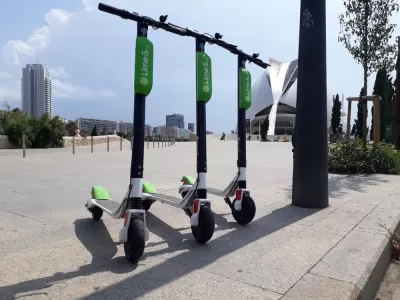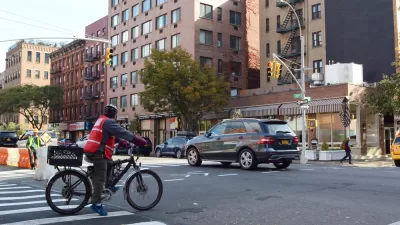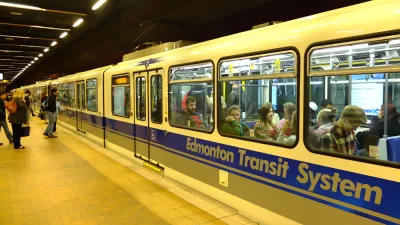Decreased public transit ridership is bringing some transit agencies to consider partnerships with micromobility corporations.

The micromobility industry took a hard hit in 2020 when the onset of the coronavirus pandemic influenced people's attitudes towards shared forms of transportation. Now, only months later, aversions and patterns of behavior are beginning to shift back in the favor of scooters and electric bikes. Patrick Sisson reports that micormobility could come back even stronger than before. "A notably different transit landscape may make the appeal of micromobility more durable. The need for additional space and new transit options in a socially distanced world has galvanized city leaders to rapidly designate car-free streets and create additional bike lanes," writes Sisson, referring to the nearly 1,600 miles of new bike lanes added during the COVID-19 lockdown around the globe.
When a recent IBM survey found that 20% of transit riders would not return to public transit, increasing attention turned to public-private partnerships between transit agencies and micromobility corporations. Sisson offers the example of Dayton, Ohio, where the city's transit agency runs operations for scooter rental company Spin. Partnerships like these could occur much more regularly as average trip lengths on scooters and electric bikes increase beyond last-mile mobility and ridership of public transit decreases.
FULL STORY: Battered by Coronavirus, Micromobility May Have Route to Revival

Alabama: Trump Terminates Settlements for Black Communities Harmed By Raw Sewage
Trump deemed the landmark civil rights agreement “illegal DEI and environmental justice policy.”

Study: Maui’s Plan to Convert Vacation Rentals to Long-Term Housing Could Cause Nearly $1 Billion Economic Loss
The plan would reduce visitor accommodation by 25% resulting in 1,900 jobs lost.

Planetizen Federal Action Tracker
A weekly monitor of how Trump’s orders and actions are impacting planners and planning in America.

Wind Energy on the Rise Despite Federal Policy Reversal
The Trump administration is revoking federal support for renewable energy, but demand for new projects continues unabated.

Passengers Flock to Caltrain After Electrification
The new electric trains are running faster and more reliably, leading to strong ridership growth on the Bay Area rail system.

Texas Churches Rally Behind ‘Yes in God’s Back Yard’ Legislation
Religious leaders want the state to reduce zoning regulations to streamline leasing church-owned land to housing developers.
Urban Design for Planners 1: Software Tools
This six-course series explores essential urban design concepts using open source software and equips planners with the tools they need to participate fully in the urban design process.
Planning for Universal Design
Learn the tools for implementing Universal Design in planning regulations.
Caltrans
Smith Gee Studio
Institute for Housing and Urban Development Studies (IHS)
City of Grandview
Harvard GSD Executive Education
Toledo-Lucas County Plan Commissions
Salt Lake City
NYU Wagner Graduate School of Public Service





























